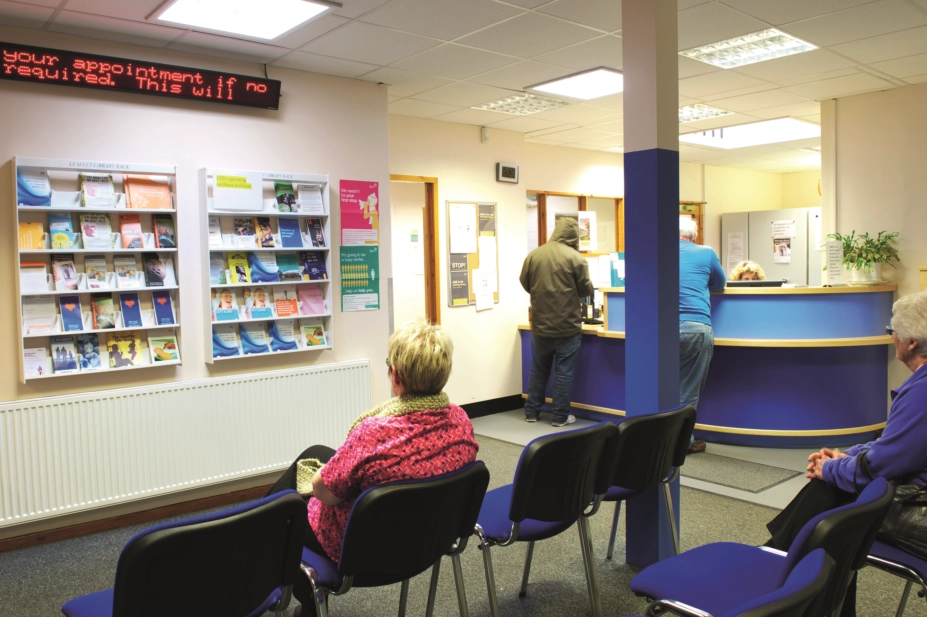
Julian Claxton / Alamy Stock Photo
Every primary care network (PCN) in England is to receive £38,000 in recurrent funding to hire a “clinical pharmacist” from July 2019.
Under a new five-year GP contract, agreed by the British Medical Association (BMA) and NHS England and announced on 31 January 2019, GP practices will be incentivised through a primary care network “directed enhanced services” contract, to form PCNs covering 30,000–50,000 patients.
Plans for these networks were laid out in the ‘NHS Long-Term Plan’, published on 7 January 2019, which said primary care would receive a £4.5bn investment to fund “expanded community multidisciplinary teams aligned with new PCNs”, including pharmacists.
To set up the networks, GP practices will receive £1.8bn over the next five years. This will include the first round of recurrent funding towards hiring and maintaining one clinical pharmacist for each PCN.
The funding, capped at £37,810 for 2019/2020, is expected to cover 70% of the costs of hiring and maintaining a pharmacist for one year, with the network expected to cover the remaining 30%.
All practices will be eligible for the funding, including those that already employ pharmacists under NHS England plans to establish 2,000 pharmacists working in GP practices by 2020, and areas with pharmacists working as part of the national pharmacists in care homes scheme will also be eligible.
NHS England has not set out the exact funding level for the subsequent four years, but it has committed to recurrently cover 70% of the costs.
According to guidance on the contract published by the BMA, it is expected that a typical PCN will have five clinical pharmacists by 2024 — the equivalent of one per practice.
Simon Dukes, chief executive at the Pharmaceutical Services Negotiating Committee, said the deal offers “a unique opportunity for us to embed ourselves further within primary care”.
“GPs will be bringing together local healthcare providers into the new networks and we must engage proactively with them and find ways to position ourselves within those PCNs. All pharmacies will need to take steps to work as closely with local GPs as they can,” he said.
“Success will also involve transforming the services that we offer, and community pharmacies will need to be ready for radical changes, such as partnering with other contractors to jointly meet the needs of their local PCN.
“We must find ways for community pharmacists to perform some of the roles of the PCN clinical pharmacists and we want to work with NHS England to facilitate local engagement to ensure that community pharmacy is at the heart of the developing local plans.”
Sandra Gidley, chair of the Royal Pharmaceutical Society English Pharmacy Board, said the news “provides huge opportunities for pharmacists and is a real recognition of the value that we bring to patients and other healthcare professionals”.
“PCNs are the framework within which the profession will progress towards greater integration with the multidisciplinary team. This, in turn, will streamline patient pathways, drive up standards of care and better support colleagues in other professions around medicines use,” she said.
“General practice will be at the centre of PCNs, but the plan makes clear pharmacists do not need to be employed directly by the practice. This opens doors to new ways of providing care that involve pharmacists across the NHS, including community and hospital colleagues. It’s vital that all pharmacists have the opportunity to get involved with their local PCN.”
Gidley added that a workforce strategy that accounts for capacity and capability “is urgently needed” to ensure that all pharmacists are “well equipped to deliver high-quality healthcare”.
The BMA guidance said it will be up to the networks to decide how the pharmacists are employed — either “by a single lead practice, by an organisation (e.g. a federation or community trust) on behalf of [the PCN], or different professionals employed by different practices within the network”.
However, James Kingsland, president of the National Association of Primary Care, previously told The Pharmaceutical Journal that pharmacists should work from community pharmacy, “where they can have their own interaction with patients”.
Malcolm Harrison, chief executive of the Company Chemists’ Association, expressed concern about the contract’s “potential impact on the community pharmacy workforce given existing pressures” and called for this five-year package to “be mirrored by a similar long-term funding plan for the community pharmacy sector so that we have the certainty we need to fully play our part in this new system”.
The BMA’s guidance adds that the new PCN contract will go live on 1 July 2019, after the networks and boundaries have been drawn up and approved by clinical commissioning groups, with additional funding streams to begin the same month.
Richard Vautrey, chair of the BMA’s GP committee, said the contract will see a “significant expansion in the workforce, which will eventually see over 20,000 healthcare staff based in networks across England”.
The extra staff will include social prescribing link workers, physician associates, practice-based physiotherapists and paramedics, which will be phased in over the five-year period.


